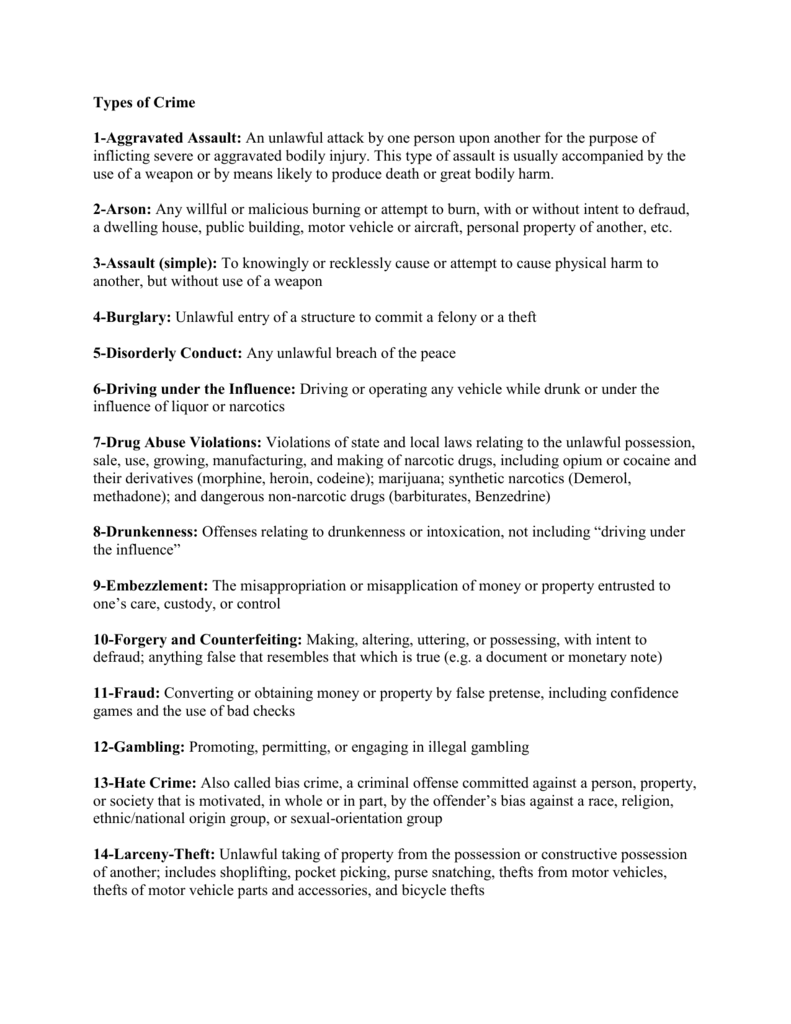Non Aggravated Assault - This article is about criminal acts. For the tortious aspect of assault, see Assault (tort). For other uses, see Assault (disambiguation).
Assault is the act of unlawfully causing physical harm or unwanted physical contact to a person or, in certain legal definitions, the threat or attempt to do such an act.
Non Aggravated Assault

It is both a felony and a misdemeanor and therefore may result in criminal prosecution, civil liability, or both. In general, the common law definition is the same as in criminal and civil law.
What Does Aggravated Assault Actually Mean In Criminal Cases?
Common law legal systems have traditionally had separate definitions for assault and battery. Where this distinction is noted, battery refers to actual physical contact, while assault refers to a credible threat or attempt to inflict battery. Some jurisdictions combine the two offices into a single crime called "assault and battery," which is widely known as "assault." The result is that in many of these jurisdictions assault has come to have a definition that conforms to the traditional definition of battery. The legal system of civil and Scots law has never distinguished between assault and battery.
Legal systems generally recognize that assaults can vary greatly in severity. In the United States, an assault can be charged as either a misdemeanor or a felony. In England and Wales and Australia this can be charged as either common assault, actual bodily harm (ABH) or grievous bodily harm (GBH). Canada also has a three-tier system: assault, assault causing bodily harm and serious assault. There are usually separate charges for sexual harassment, fraud and assaulting a police officer. Assault may overlap with attempted crimes; For example, an assault can be charged as attempted murder if it is done with the intent to kill.
In jurisdictions that distinguish between the two, assault is usually accompanied by battery if the assailant both threatens to make unwanted contact and carries out the threat. See general attack. The element of battery is that it is an intentional act,
Intended to cause harmful or indecent contact with another person or in circumstances that sufficiently warrant such contact and that cause such contact.
Clarksville Man Wanted For Aggravated Assault On First Responder After Fleeing During Arrest
Aggravated assault can also be charged in cases of attempted injury against police officers or other public officials.
Although the range and specific application of defs varies between jurisdictions, the following is a list of defs that may apply to all levels of attack:
There are exceptions to cover unwanted physical contact that amounts to normal social behavior known as de minimis harm. Spitting or unwanted exposure of bodily fluids to others can also be considered bullying.

Const can be a full or partial attack. In some jurisdictions, notably Gland, it is not a defus where the degree of injury is serious, unless there is a legally recognized just cause for the attack.
Aggravated Assault At Maplewood Drive In Warner Robins
This can have important consequences in dealing with issues such as consensual sadomasochistic sexual activity, the case of Operation Spanner being the most notable case. Legally recognized good reasons for const include surgery, activity within the rules of a sport (mixed martial arts, wrestling, boxing or contact sports), physical care (R v Wilson [1996] Crim LR 573) or playing horse (R v Jones). ) [1987] Crim LR 123). However, any activity outside the rules of the game is not legally recognized as a breach of const. In Scots law, there is no defs for assault.
Police officers and court officers have general powers to use force for the purpose of arrest or for the purpose of carrying out their official duties. Thus, a judicial officer seizing property pursuant to a court order may use force when reasonably necessary.
In some jurisdictions, such as Singapore, judicial corporal punishment is part of the legal system. Officers administering sentences have immunity from prosecution for assault.
In the United States, United Kingdom, Australia, and Canada, corporal punishment of a child by their legal guardian is not legally considered abuse unless it is considered excessive or unreasonable. What constitutes "reasonable" varies in both statutory law and case law. Unreasonable corporal punishment can be charged as assault or under a separate statute for child abuse.
Video: What Every Texan Should Know About Aggravated Assault
Many countries, including some US states, allow the use of corporal punishment for children in schools. In the Glossary Act, art. 58 The statutory amendment to the Childr Act 2004 limits its availability in defecation to simple assaults under s. 39 Criminal Justice Act 1988.
It may or may not involve self-defense, it may include the use of a reasonable degree of force to prevent another from committing a crime, it may include preventing an assault, but it may prevent a crime that does not involve the use of personal violence.
Some jurisdictions allow the use of force in defense of property, either to prevent damage per se or to threaten or attempt to damage property in one or both of the preceding categories, which may be considered offenses (in gloss law, it may be argued in under s5 Criminal Damage Act 1971 A defendant may have a valid excuse for damaging property during security and a defense under s3 Criminal Law Act 1967) is subject to the need to be prudent and to discourage excessive self-help. In addition, some jurisdictions, such as Ohio, allow residents of their homes to use force to evict any intruder. Residents only have to state to the court that they feel threatened by the intruder's location.

The following are the countries with the highest incidence of attacks according to the United Nations in 2018.
What Are The Prison Terms & Fines For Aggravated Assault In New Jersey?
The term "assault" as used in the law generally refers to both common assault and battery, although the two offices are distinct. Common assault involves intentionally or recklessly causing a person to perceive an imminent provocation of unlawful force, while assault refers to the actual propensity to use force.
Each state has statutes relating to the statute of assault, and the office of the accused is heard in that state's magistrate court or in a district or supreme court of that state to prosecute the offense that constitutes assault. The laws that define assault in each state outline what constitutes assault, where assault is classified in the statute or criminal code, and what penalties apply to the assault office.
Defines a series of attacks that are considered more serious than normal and attract heavy penalties. These include:
There is a wide range of attacks that can occur. In general, an assault occurs when a person, directly or indirectly, intentionally applies force to another person without balancing them. It can also occur when one person attempts to use such force, or threatens to do so, without coercion from the other person. Assault does not require injury, but the force used in the assault must be offensive in nature for the purpose of the force. It may be an assault to direct a "press," "pinch," "push," or other such minor action at another, but an accident of force is not an assault.
Assault Vs. Aggravated Assault Charges In Texas
The potential punishment for assault in Canada varies depending on the type of assault and how the charge is brought through the court system. The Criminal Procedure Code defines assault as a dual function (indictment or summary). Despite S.495(2)(d) of the Code, police officers can arrest someone without a warrant for assault if it is in the public interest.
This public interest is generally satisfied by preventing the continuation or repetition of the warrant on the same victim.
A person cannot commit assault with a weapon, physical injury, aggravated assault, or any sexual assault. There will also be damages if two people fight and cause grievous bodily harm (R v. Paice; R v. Jobidon). A person cannot cause serious bodily harm.

Attacks in Ansit Greece are commonly called Unlike modern usage, the word did not have the exaggerated sense of excessive pride, self-confidence, or arrogance, which often led to fatal retaliation. In Ancient Greece, "hubris" refers to actions that, intentionally or unintentionally, shame and humiliate the victim and often the perpetrator. This was most evident in the public and private activities of the powerful and wealthy.
Complete Guide On Assault Charges, Penalties And Defences
Violations of the law against defamation included what today would be called assault and battery; Sexual offenses ranging from forced rape of a pregnant woman or child to consensual but illicit activities; or theft of public or sacred goods.
Two well-known incidents occur in the speeches of Demosthes, a prominent statesman and orator of ancient Greece. These two cases occurred in the first where, among other acts of violence, Medeus punched Demosthes in the face in the theater (against Medeus) and the second (against Conon) where the accused allegedly beat him severe.
Hubris, although not specifically defined, was a legal term and was considered a crime in classical ethics. It was considered the greatest sin in the ancient Greek world. that's how it was
Second degree assault washington state, 2nd degree assault sentence, 2nd degree aggravated assault, 2nd degree assault mn, 2nd degree assault, 2nd degree assault definition, 3rd degree assault washington state, 4th degree assault washington state, 2nd degree felony assault, 4th degree assault washington, what is assault 2nd degree, 2nd degree assault charges